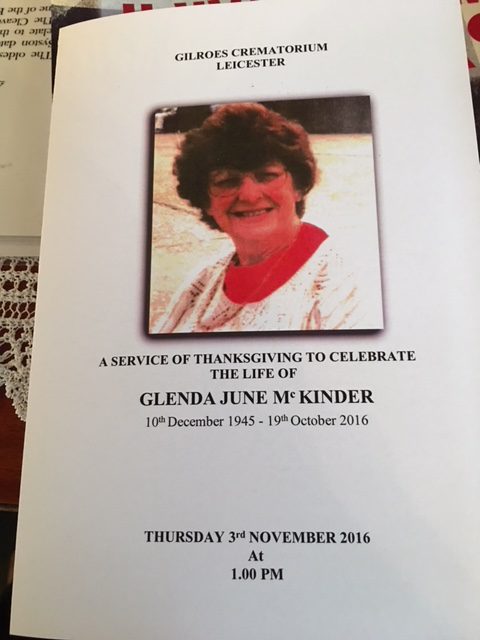Fighting Rare Disease as a Family
What one UK family faced with Erdheim-Chester Disease.
 By Chesnee Green
By Chesnee Green
September 13, 2018
Erdheim-Chester Disease (ECD) patients are fighting a daily battle with their mental and physical health. Likewise, the caregivers are also fighting a daily battle. Many times, the behind the scenes/behind the disease story isn’t told or heard. One caregiver has graciously obliged to tell the complicated, behind-the-scenes story that caregivers face every day.
Lynda Rowland’s story details her life as a caregiver for her beloved sister Glenda and the struggles the family had to face.
Nearly ten years prior to Glenda’s diagnosis and twelve years prior to her untimely death, her ECD journey began. Lynda and family members began to notice slight changes in Glenda’s behavior, such as eating outdated foods, leaving cooking surfaces on, not getting off the bus at her regular stops that she had been using for 13-years, constant thirst, and constantly feeling like she had flu-symptoms. Glenda would even do strange things followed by inappropriate laughter.
Being a normal, sweet, hard-working middle-aged woman, these actions were simply out of the norm, strange, and concerning. The family would call Glenda “dozey” and said that it was just her “funny age.” Unfortunately, these “funny age” actions only worsened and caused even more concern to the family. The excessive thirst was so intense, Glenda began drinking anything and everything that she could get her hands on. Her balance was also becoming less controllable. These two symptoms together left Lynda to think that her sister had just became an alcoholic. Little did they know at the time this was not the case.
Due to government cutbacks, medical resources were not readily available. Lynda thought that a brain tumor could be the cause of Glenda’s new rash behaviors. With a lack of government funding and her doctors believing it was a brain bleed, there were no further tests and believed that it would go away with time.
Like many others, the symptoms didn’t go away, rather they worsened and so did the stress on the family. The symptoms compiled: coughing/choking when eating or drinking, no balance and falling over, bladder failure, bowel incontinence, excessive drooling, more infections, hallucinations, and even more hospitalizations. At one point they catheterized Glenda, which only created more issues. Glenda would tug at the catheter, empty it at inappropriate times and places, or simply didn’t empty it at all. This was very taxing on the family. At this point, she was diagnosed with multi-infarct dementia.
As the family struggled they searched for support! Glenda was in her 50’s at the time and there was simply no support group that fit her age group or the family’s needs. The only support that was available really provided no reprieve. Because Glenda was considered mentally capable of making her own decisions, she would often choke on food and drinks while under the care of these caregivers. Although the family had told the caregivers that Glenda could not have certain foods or drinks, the caregiver was obligated to follow the wants and needs of Glenda.
After nearly 10 years of struggling, “Then the real stuff started to kick in…” says Lynda. Glenda could no longer walk, was doubly incontinent, had a damaged throat from regular choking, and a body structure that mimicked multiple sclerosis. Seeing doctor after doctor, as well as Lynda and the family’s persistence, finally paid-off. They were given a proper diagnosis of Erdheim-Chester Disease.
The diagnosis came as a total shock, after so many years of heartache and not knowing what they were dealing with. Living in the unknown can be very challenging on the body and the mind, but the diagnosis didn’t end the struggle. The diagnosis was not found soon enough to benefit from the drugs that help ECD patients regain some control of their health.
Glenda would soon have to be put in a nursing home. Glenda’s daughters became so frightened about the possibility of her choking to death, it literally became a living nightmare for the family. The week before Glenda died she told Lynda she as tired of it, tired of fighting. On October 19, 2016, on her niece’s birthday, Glenda passed away.
ECD is not only a battle for the patient, it is a struggle for the caregivers and families that surround them. Early diagnosis is very important for ECD patients, as the long-term damage to their organs can often not be reversed.
“Care is a state in which something does matter; it is the source of human tenderness.” – Rollo May








